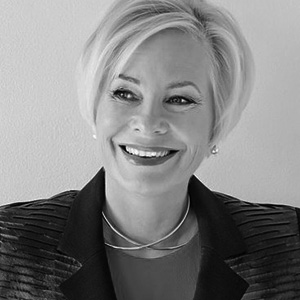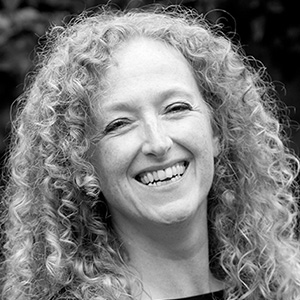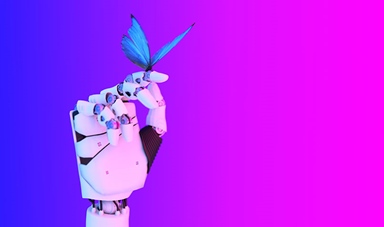Loading component...
At a glance
Ross Judd
Founder, Team Focus International

People now communicate through emojis, texts, emails, and other mediums, which means we’ve learned new communication habits and even a new (albeit symbolic) language.
Clearly people can learn soft skills, but my question is, why aren’t they? Why are the standards of leadership, on a global scale, so poor?
People can learn anything if motivated enough – so why aren’t people motivated to improve leadership, communication, coaching, mentoring, and other soft skills?
Maybe it’s because we call them “soft skills”. Hands up all those who would like to learn something “soft”?
I think the deeper reason is due to the beliefs and identity we develop around leadership in our early roles.
The first leadership position is a team leader or leading hand. People may be promoted to that role because they were the best operator and they exist to make all the operators as good as they were.
They instruct (instead of asking), check quality, solve problems, and become the technical experts. In this role, they learn to equate leadership with command and control, instruction, micro management, and task or technical excellence.
The beliefs and identity they develop around leadership become very hard to shake in later roles, where that style can be a disaster.
"People can learn anything if motivated enough – so why aren’t people motivated to improve leadership, communication, coaching, mentoring, and other soft skills? Maybe it’s because we call them “soft skills”."
Leaders need support to understand that as they transition through their leadership roles, the beliefs about leadership, and their identity as a leader, need to change – that’s the only way we will get sustained behavioural change, improve the standards of leadership, and learn soft skills.
Dr Karen Morley
Principal, Karen Morley & Associates

I think we’re asking the wrong question. You can learn soft skills, and people learn best when they are motivated, practise extensively and get feedback.
A 2018 meta-analysis, published in Emotion Review journal, found that interactive workshops focusing on specific emotional abilities worked best.
The two more important questions are: why don’t organisations invest in developing soft skills, and why don’t they reward them?
Growth, innovation and change increasingly feature in the future of work.
McKinsey research shows as much as 50 per cent of work could be automated by 2055. Soft skills are the ones that won’t be automated; we’ll need more of them. Skills like kindness, generosity and trust drive engagement and productivity. T
hat makes focusing on them essential. They underpin future success.
The problem is how to prioritise continuing mastery. Soft skills are highly complex, take years to learn and are constantly in flux. It’s not “set and forget”, which is how most organisations approach it.
It isn’t whether they can be developed, but whether we will invest in their ongoing development.
"With COVID-19 forcing many people to work remotely, soft skills are going to be tested; they could be one of the biggest contributors to an organisation’s ability to survive."
Organisations pay a premium for hard skills over soft skills – twice as much (and rising), according to a recent McKinsey study on the skills and salaries of 10.2 million job postings.
With COVID-19 forcing many people to work remotely, soft skills are going to be tested; they could be one of the biggest contributors to an organisation’s ability to survive.
Too many organisations are not taking the time to make sure their employees are developing soft skills, and too few organisations reward soft skills.
They can be developed, but it’s down to organisations to make them the priority they should be.
Sue Langley
CEO and founder, Langley Group

If people can’t manage their emotions, they are more likely to exhibit poor behaviour.
We have been seeing this recently – the uncertainty around COVID-19 has created a sense of anxiety and fear for many people, which has led to panic buying in supermarkets.
Soft skills – although I prefer to call them essential skills – can be taught. First, you need to perceive your emotions and understand how they influence your behaviour.
Emotions are the foundation of everything we do. They drive our decisions, behaviour and performance.
In teaching these skills, I teach people about the science behind emotions. It’s important to understand that emotions don’t appear arbitrarily.
Emotions can be viewed as data – the more accurate your data, the better choices you can make. If you analyse the data, it will tell you something about yourself and your behaviour.
When you feel prickles on the back of your neck and your heart starts racing faster, stop and pay attention to that data and work out what it’s trying to tell you.
The better you get at picking up on your emotions, the better decisions you can make.
"Emotion underpins everything, and there’s a science behind it. If you can understand your emotions and how they connect to behaviour, you can certainly learn soft skills."
Handling your emotions and understanding their influence are key to developing soft skills.
Are your emotions making you more critical, more direct, more abrupt? Are you displaying anger when in fact you’re feeling fear?
Emotion underpins everything, and there’s a science behind it. If you can understand your emotions and how they connect to behaviour, you can certainly learn soft skills.
Meet the experts
Ross Judd
Ross Judd is a cultural engagement expert and founder of Team Focus International. The author of Cultural Insanity And the Roadmap to Great Organisational Culture, he works with leaders to engage their workforce in the creation of a strong culture that will deliver the best business outcomes.
Dr Karen Morley
Dr Karen Morley helps leaders understand the value of inclusive leadership to organisational and social outcomes. Principal of Karen Morley & Associates, she is also an authority on the benefits of gender-balanced leadership and how to help women succeed at work. Morley is the author of Beat Gender Bias: How to Play a Better Part in a More Inclusive World, Lead Like a Coach: How to Get the Most Out of Any Team, and Gender Balanced Leadership: An Executive Guide.
Sue Langley
Sue Langley is a speaker, trainer, global business consultant, researcher and leading adviser on the practical workplace applications of neuroscience, emotional intelligence and positive psychology. As CEO and founder of the Langley Group of companies, she has taught thousands of business leaders, HR professionals and consultants how to harness the brain’s potential, create positive workplaces and be more intelligent about emotions.

